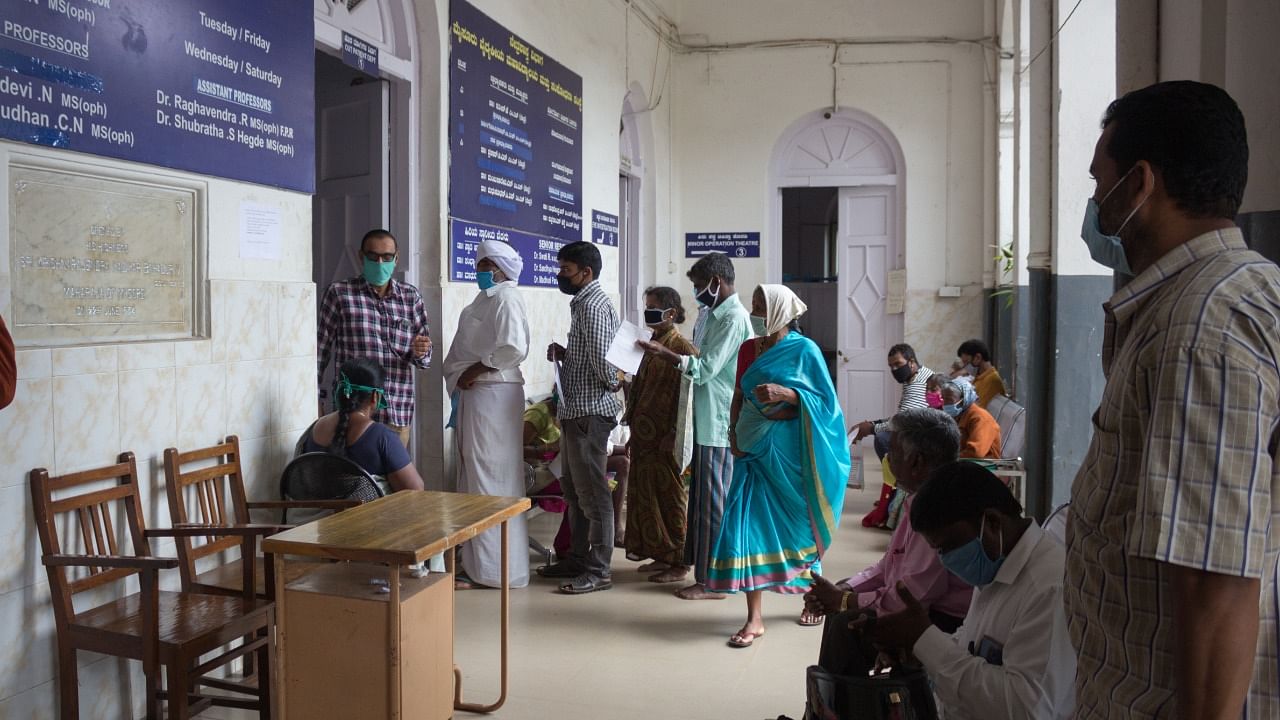
Representative Image.
Credit: iStock Photo
India’s large populous states like Bihar, Uttar Pradesh, Madhya Pradesh, Maharashtra and Rajasthan have very few hospitals where the poor can seek treatment free-of-cost under the centre’s Ayushman Bharat-PMJAY scheme, the Comptroller and Auditor General said in a new report.
As of November 2022, Bihar had 1.8 hospitals per lakh such patients – the lowest in India. The situation is similar for Uttar Pradesh (5), Maharashtra (3), Madhya Pradesh (2.7), Rajasthan (3.8), Jharkhand (6) and Assam (3.4).
The CAG report – tabled in the Parliament on Tuesday - comes a month ahead of the fifth anniversary of the flagship scheme under which the Union government offered to provide a family insurance of Rs 5 lakh to 10.74 crore poor families.
As of November 2022, as many as 26,209 hospitals – 11,930 private and 14,279 public – have been empanelled under the scheme.
“The availability of empanelled healthcare providers (hospitals) is very less in Assam (3.4), Dadra Nagar Haveli-Daman Diu (3.6), Maharashtra (3) and Rajasthan (3.8),” it added. The number of beneficiaries in Bihar and Uttar Pradesh respectively are at 5.56 crore and 6.47 crore, but the availability of hospitals was very low at 1.8 and 5 hospitals per lakh such patients.
Some of the better performing states on the other hand are Goa (26.8), Himachal Pradesh (23.7) and Karnataka (21.5).
The audit report flagged other flaws in executing the mega scheme implemented by the National Health Authority, which accepted some of the shortcomings but also noted that the performance audit was carried out during the initial and incipient stages.
On the availability of hospitals, it found that in Andhra Pradesh, out of 1,421 empanelled hospitals, nearly one-third (524 EHCP) submitted zero claims while 81 submitted one to five claims, signalling inadequate servicing of the poor in these hospitals.
In Tamil Nadu, none of the 19 government hospitals empanelled were entertaining patients under the scheme as of March 31, 2021 with the State Health Authority replying that these hospitals were not interested in joining the programme.
In Jharkhand, Punjab and Uttar Pradesh several empanelled hospitals were not offering the treatment to the poor.
Following the controversy on the use of the same mobile number to enter the details of the lakhs of patients, sources said the matter had been wrongly portrayed to suggest that a large number of beneficiaries would have become eligible under the scheme fraudulently and had availed treatment causing loss to the exchequer. But that was not the case.
"Initially the mobile number was not a mandatory field during beneficiary verification and therefore, the mobile number was not validated. However, since there was a field for collecting mobile numbers, it is possible that some random ten-digit number was entered by the field level workers in some cases," official sources said, emphasising that such entries wouldn’t impact either the correctness of the beneficiary verification process or the validity of the beneficiaries’ claim.
Subsequently necessary changes were made in the IT portal to capture the correct mobile number of the beneficiaries.
